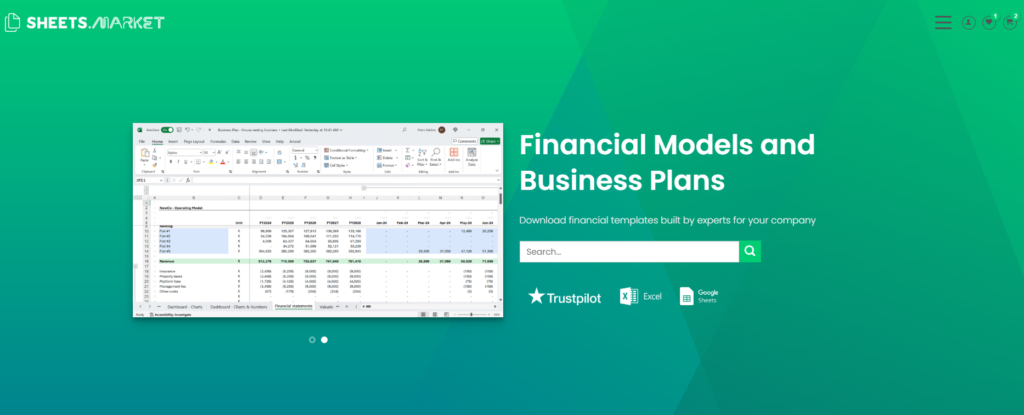Geschäftsplanung und -strategie, Finanzmodelle
Bar-Geschäftsmodell: Kosten, Umsatzpotenzial und Rentabilität
Eine Bar ist in einer Kategorie mit hoher Bruttomarge und frei verfügbaren Ausgaben tätig, deren Rentabilität von Sitzplatzauslastung, alkoholische Getränkemischung, Und Betriebsdurchsatz. Mit relativ stabilen Zutatenkosten und einer günstigen Preissetzungsmacht erzielen Riegel hohe Margen, wenn die Betreiber Arbeitspläne, Produktabfälle, Und Monetarisierung in Spitzenzeiten mit Disziplin. Das Modell lebt von Standort, Ambiente und Geschwindigkeit – nicht von Vielfalt oder Größe.
Asset-Konfiguration
Die Investitionsausgaben sind moderat bis hoch und werden durch Investitionen in die Bar-Infrastruktur, Kühlung, Kassensysteme und Design bestimmt. Eine typische städtische Bar erstreckt sich über 1.500 bis 3.000 Quadratfuß., Ausgleich von Sitzplätzen, Barkapazität und Stehplätzen.
| Anlagekategorie | Kostenspanne (USD) | Hinweise |
|---|---|---|
| Bar-Ausbau und Ausstattung | 40.000 bis 80.000 | Bartheke, Barrücken, Unterthekenkühlung, Zapfanlage |
| Sitzgelegenheiten, Tische, Ambientebeleuchtung | 25.000 bis 45.000 | Innenmöbel, stimmungsvolle Beleuchtung, Wandgestaltung |
| Küchenausstattung (falls Essen serviert wird) | 15.000 bis 30.000 | Leichtes Kochen, Anrichten oder Servieren von kalten Speisen |
| POS-, Zahlungs- und Inventarsysteme | 10.000 bis 15.000 | Gussverfolgung, Tab-Verwaltung, Bestandskontrolle |
| Lizenzierung, Branding, Erstbestand | 20.000 bis 35.000 | Alkohollizenz, erste Bestellungen, Menügestaltung |
Gesamtkapitalaufwand: 110.000 bis 205.000 USD, wobei regulatorische und gestalterische Faktoren die endgültigen Kosten beeinflussen.
Erlösmodell
Der Umsatz wird hauptsächlich durch alkoholische Getränke, insbesondere Cocktails, Fassbier und Spirituosen, mit starken Margen. Upselling-Möglichkeiten umfassen Spezialgetränke, Flaschenservice, Bargerichte, Und Veranstaltungen oder private Buchungen.
Jährliches Umsatzpotenzial – 185 m² große Urban Bar (80 Sitzplätze, 6 Tage/Woche Betrieb)
| Einnahmequelle | Volumenannahme | Jahresumsatz (USD) |
|---|---|---|
| Alkoholverkauf (Bier, Spirituosen, Wein) | 1.200 Bestellungen/Woche zu durchschnittlich 12 USD. | 748,800 |
| Cocktails und Signature Drinks | 700 Bestellungen/Woche zu durchschnittlich 16 USD. | 582,400 |
| Bargerichte / kleine Gerichte | 500 Bestellungen/Woche zu durchschnittlich 10 USD. | 260,000 |
| Veranstaltungen, Privatvermietungen, Mindestbestellwert | 2 Veranstaltungen/Woche für durchschnittlich 1.500 USD. | 156,000 |
| Merchandise und Takeaway | 500 pro Monat im Durchschnitt. | 6,000 |
| Gesamt | 1,753,200 |
Bars in Ausgehvierteln oder mit Nischenpositionierung (Cocktailbars, Speakeasies) können übertreffen 2,5 Millionen USD/Jahr. Standorte mit schlechter Planung oder generischen Angeboten erreichen oft weniger als 1 Million USD.
Betriebskosten
Die Herstellungskosten für Getränke sind strukturell niedrig (15 bis 25 Prozent), während Lebensmittel höhere variable Kosten verursachen. Die Lohnkosten sind aufgrund der erforderlichen Fähigkeiten des Barkeepers und der Nachtschichtarbeit erheblich. Lizenzen, Sicherheit und Reinigung sind Fixkosten.
| Kostenkategorie | Jährliche Kostenspanne (USD) |
|---|---|
| Kosten der verkauften Waren | 350.000 bis 430.000 |
| Löhne und Gehaltsabrechnung | 400.000 bis 480.000 |
| Miete, Nebenkosten, Versicherung | 180.000 bis 240.000 |
| Marketing, Promotions, Events | 60.000 bis 90.000 |
| Lizenzen, Sicherheit, Reinigung | 50.000 bis 75.000 |
| POS, Technik, Verwaltung | 25.000 bis 35.000 |
| Gesamtbetriebskosten | 1.065.000 bis 1.350.000 |
EBITDA = 1.753.200 – 1.065.000 bis 1.350.000 = 403.200 bis 688.200 USD
EBITDA-Marge = 23.0% bis 39.3%
Effiziente Betreiber in Top-Lage mit kontrolliertem Gastronomiebetrieb und konstantem Kundenverkehr erzielen regelmäßig EBITDA-Margen von über 30 Prozent. Überdimensionierte Bars mit hohen Lohnkosten und nicht ausgelasteter Fläche erzielen oft nur Margen zwischen 20 und 25 Prozent.
Rentabilitätsstrategien
Die Rentabilität einer Bar hängt von Stundenleistung, Alkoholmischungskontrolle und Arbeitseinsatz.
Beginnen Sie mit Spitzenzeitentechnik. Zielen Sie auf die Hauptbetriebszeiten (18:00 bis 1:00 Uhr, Donnerstag bis Samstag) mit hochmargigen Cocktails, Getränkepaketen oder Werbeaktionen, die Umsatz pro besetztem Sitzplatz pro Stunde. Planen Sie die Personalbesetzung, Vorbereitung und Auffüllung entsprechend dieser Zeitfenster.
Maximieren Bruttomarge über Getränkemix. Verfolgen Sie die Kosten pro Cocktail und nehmen Sie weniger ertragreiche Artikel aus der Karte. Nutzen Sie gut kombinierte Upselling-Angebote (z. B. Old Fashioned + Snack-Kombination), um die Ausgaben zu steigern. Halten Sie die Kosten für Getränke unter 22 Prozent, Essen unter 30 Prozent, und verfolgen Sie Abweichungen wöchentlich.
Implementieren Arbeit als Leistungshebel. Barkeeper und Kellner bereichsübergreifend schulen, anreizbasierte Arbeitszeiten nutzen und tote Schichten minimieren. Die Lohnkosten sollten unter 30 Prozent des Umsatzes, inklusive Trinkgeld.
Hinzufügen alkoholfreie Marge: Markenmixer, Mocktail-Optionen, Getränke in Flaschen zum Mitnehmen. Diese erzielen Preise nahe dem Getränkepreis bei einer Bruttomarge von 60 bis 80 Prozent.
Schließlich institutionalisieren Event-MonetarisierungPrivate Buchungen, Themenabende und Sportvorführungen sollten mehr als 10 Prozent des Jahresumsatzes ausmachen. Nutzen Sie Mindestumsatzvereinbarungen und dynamische Preise basierend auf Spitzenzeiten.
Na und?
Eine Bar ist nicht nur ein geselliger Treffpunkt – sie ist ein margenstarker, zeitkritischer und erlebnisorientierter Betrieb. Die Rentabilität hängt vom Bruttogewinn pro Stunde, der Präzision der Arbeit und dem alkoholorientierten Upselling ab. Betreiber, die den Durchsatz zur besten Sendezeit strukturieren, Abfall reduzieren und margenstarke Dienstleistungen anbieten, können Folgendes erreichen: 23 bis 39 Prozent EBITDA-Margen An 1,7 Millionen USD Umsatz, mit Investitionsausgaben unter 210.000 USD. Im Bargeschäft fließt das Produkt schnell – aber die Marge ergibt sich aus der Kontrolle.

Überlegen Sie, eine Bar zu eröffnen? Laden Sie das umfassende Bar Vorlage für ein Geschäftsfinanzmodell aus BLÄTTER.MARKT Vereinfachen Sie Ihre Finanzplanung. Mit diesem Tool können Sie Kosten, Einnahmen und potenzielle Gewinne prognostizieren und so die Finanzierung sichern und den Erfolg Ihres Bargeschäfts planen.



